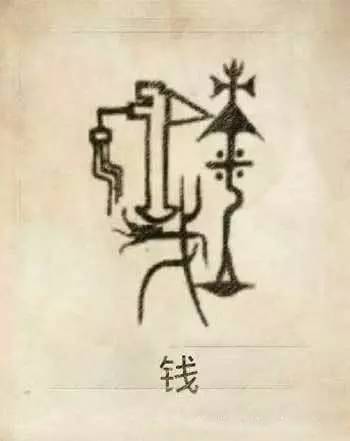The Qian (qián) surname, meaning "money" or "currency" in Chinese, is one of China’s most storied family names. Deeply intertwined with themes of wealth, governance, and intellectual legacy, the Qian clan’s history spans millennia and reflects the evolution of Chinese civilization. For American readers curious about Chinese heritage, here’s an engaging exploration of the Qian surname’s origins, historical luminaries, and enduring cultural impact.

Origins: From Ancient Officials to a Timeless Surname
The Qian surname traces its roots to two legendary narratives that highlight its connection to governance and wisdom:
The Currency Official
According to historical records, the Qian clan originated with Peng Fu, a descendant of the mythical longevity figure Peng Zu. During the Western Zhou Dynasty (1046–771 BCE), Peng Fu served as the "Minister of Currency" (Qianfu Shangshi), overseeing coinage and state finances. His title, Qian (钱), later became the family surname. The Chinese character 钱 combines "金" (gold/metal) and "戋" (small increments), symbolizing the wisdom of accumulating wealth through diligence.
Another origin story links the surname to Jian Keng (also known as Peng Zu), a descendant of Emperor Zhuanxu (one of China’s Five Legendary Emperors). Renowned for his mastery of health preservation, Jian Keng was enfeoffed in Pengcheng. His descendants initially used the surname Jian (篯), which later simplified to Qian (钱). This version ties the surname to China’s earliest political systems and philosophical traditions.
Historical Luminaries: Leaders, Thinkers, and Innovators
The Qian family produced remarkable figures who shaped China’s political, cultural, and scientific landscapes:
Qian Liu (852–932 CE)
Founder of the Kingdom of Wuyue during the Five Dynasties period, Qian Liu transformed the Jiangnan region (modern Zhejiang and Jiangsu) into a prosperous haven. Known as the "Dragon King of the Sea" for his flood-control projects, his decision to peacefully surrender his kingdom to the Song Dynasty spared his people from war, cementing the Qians as a respected aristocratic lineage.
Cultural and Scientific Pioneers
Qian Weiyan: A Northern Song poet celebrated for his opulent literary style.
Qian Daxin: A Qing Dynasty scholar who pioneered evidence-based historical research.
Qian Xuantong: A revolutionary linguist who championed Chinese script reform during the New Culture Movement.
Qian Xuesen: The "Father of Chinese Aerospace," pivotal to China’s missile and space programs.
Qian Zhongshu: Literary giant and author of Fortress Besieged, a masterpiece of modern Chinese fiction.
These figures embody the Qian clan’s dual legacy: pragmatic governance and bold innovation.
Cultural DNA: Values Etched in Ancestral Teachings
The Qian Family Code
The Qian Family Precepts (Qian Shi Jia Xun) begin with a powerful maxim: "Never seek profit for oneself alone; always seek profit for all under heaven." Emphasizing education and ethical conduct over mere career advancement, these teachings nurtured over 100 imperial scholars in ancient times and modern luminaries like Nobel laureate Roger Y. Tsien (a 34th-generation Qian descendant).
Architectural Heritage
The Nine Memorial Arches at Hongshan Qianwang Temple (Wuxi) honor the nine rulers of Wuyue.
Hangzhou’s Qianwang Temple features bronze murals depicting Qian Liu’s benevolent rule, immortalized in his poetic phrase: "When wildflowers bloom on the path, return home slowly."
Modern Global Influence
Today’s Qian descendants continue this legacy of cross-disciplinary excellence:
Qian Yingyi: Economist and advocate for China’s education reform.
Qian Yuan: Trailblazer in artificial intelligence research.
Qian Fu: Diplomat fostering international relations.
From Silicon Valley to Wall Street, the Qian name thrives in global innovation.
Modern Distribution: A Family Without Borders
Centered in Jiangnan (southern China), the Qian surname is most concentrated in Jiangsu, Zhejiang, and Shanghai. Over centuries, Qian clans have migrated nationwide and established vibrant communities overseas, particularly in Southeast Asia, North America, and Europe.
Conclusion: The True Wealth of a Thousand Years
When visiting Hangzhou’s Qianwang Temple or gazing at a Long March rocket in Jiuquan, one witnesses more than a family’s history—it’s a testament to Chinese values of self-cultivation, familial duty, and societal contribution. The Qian story reminds us that true prosperity lies not in gold, but in the pursuit of wisdom and the preservation of civilization.